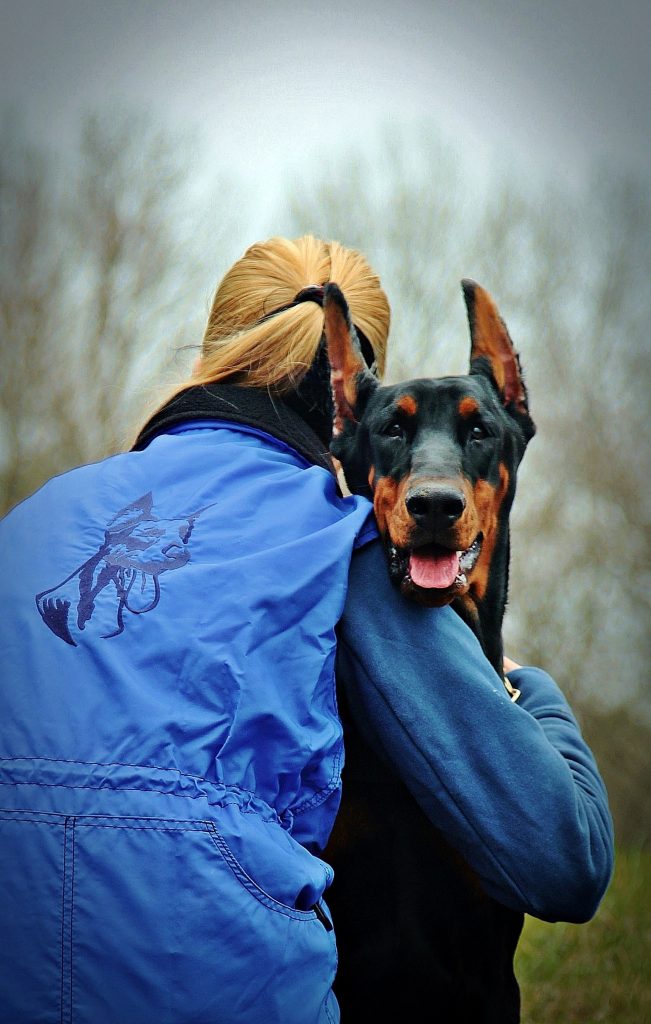Asthma in dogs is a respiratory condition characterized by inflammation and constriction of the airways, which can lead to difficulty breathing and other respiratory symptoms. Similar to human asthma, this condition often manifests as episodes of coughing, wheezing, and labored breathing, particularly after exposure to allergens or irritants. While less common than in humans, asthma can significantly impact a dog’s quality of life if not properly managed. The underlying cause of asthma in dogs is typically an allergic reaction to environmental factors such as pollen, dust mites, mold, or airborne chemicals. These allergens trigger an inflammatory response in the airways, causing them to narrow and making it difficult for the dog to breathe comfortably. Diagnosing asthma in dogs involves a thorough evaluation by a veterinarian, including a review of clinical signs, medical history, and sometimes diagnostic tests such as chest X-rays or bronchoscopy. Treatment usually focuses on managing inflammation and alleviating symptoms through medications like bronchodilators to open up the airways and corticosteroids to reduce inflammation. Managing asthma in dogs also involves identifying and minimizing exposure to triggers, providing a clean and allergen-free environment, and ensuring compliance with prescribed medications. With proper veterinary care and ongoing management, many dogs with asthma can lead active and fulfilling lives.
Symptoms of Asthma In Dogs
- Coughing: Dogs with asthma often exhibit a dry, persistent cough. The cough may worsen at night or after exercise.
- Wheezing: Audible wheezing or noisy breathing is common in dogs with asthma. This occurs due to the narrowing of the airways, which creates a whistling or rattling sound during breathing.
- Labored Breathing: Dogs may show signs of difficulty breathing, such as rapid or shallow breaths. They may also exhibit an increased effort to breathe, with visible abdominal movements.
- Shortness of Breath: Asthmatic dogs may have episodes of breathlessness or rapid breathing, especially after physical exertion or exposure to triggers.
- Exercise Intolerance: Due to compromised lung function, dogs with asthma may show reluctance to exercise or may tire quickly during physical activity.
- Gagging or Vomiting: Severe coughing fits can sometimes lead to gagging or even vomiting in affected dogs.
- Open-mouth Breathing: In severe cases, dogs may resort to open-mouth breathing as a way to get more air into their lungs.
- Restlessness or Anxiety: Respiratory distress can cause dogs to become restless, anxious, or seek out cool areas to alleviate discomfort.
Treatment Advice
Identify and Avoid Triggers: Work with your veterinarian to identify and minimize exposure to allergens or irritants that trigger asthma attacks. This may include reducing dust, mold, pollen, and smoke in your dog’s environment.
Medication Regimen: Your vet may prescribe long-term medications such as oral corticosteroids, inhaled corticosteroids, or other anti-inflammatory drugs to manage chronic inflammation and reduce the frequency and severity of asthma episodes.
Environmental Control: Maintain a clean and allergen-free environment for your dog. Regularly clean bedding, vacuum carpets and upholstery, and use air purifiers if necessary.
Weight Management: Ensure your dog maintains a healthy weight through proper diet and regular exercise. Obesity can exacerbate asthma symptoms.
Regular Veterinary Check-ups: Schedule routine visits to monitor your dog’s respiratory health, adjust medications as needed, and detect any complications early.
Education and Monitoring: Learn to recognize signs of asthma exacerbation in your dog, such as coughing, wheezing, or increased respiratory effort. Monitor your dog closely and report any changes to your veterinarian promptly.
Emergency Plan: Have a plan in place for managing acute asthma attacks at home, including how to administer medications and when to seek emergency veterinary care.
Preventative Measures
Prevention is better than cure. Here are some ways you can ensure good health for your furry friend.
- Reduce Stress: Minimize stress in your dog’s environment, as stress can weaken the immune system and potentially trigger asthma attacks. Provide a calm and predictable routine and consider activities that promote mental stimulation and relaxation.
- Regular Veterinary Check-ups: Schedule routine visits to your veterinarian for comprehensive health assessments. Early detection of respiratory issues or underlying conditions can help prevent the development of asthma.
- Good Dental Care: Poor dental health can contribute to respiratory infections, which may exacerbate asthma symptoms. Implement a regular dental care routine recommended by your veterinarian.
- Monitor Respiratory Health: Be observant of your dog’s breathing patterns and any signs of coughing or wheezing. Promptly report any changes to your veterinarian to address potential respiratory issues early.
- Avoid Strong Chemicals: Limit exposure to strong chemicals, cleaners, and aerosols in your home or yard, as these can irritate your dog’s airways.
- Consider Allergen Testing: In cases where allergies are suspected to be a significant trigger, your veterinarian may recommend allergy testing to identify specific allergens and develop a management plan.
Conclusion
Just like humans, dogs can also have asthma. In dogs, asthma can only be discovered through thorough testing and observation as they are subtle. Your veterinarian may be able to give you a thorough diagnosis and rule out other potential causes of the symptoms. Your veterinarian may recommend different tests to give them a better understanding of the condition.




 On demand visits for urgent issues 24/7
On demand visits for urgent issues 24/7 







